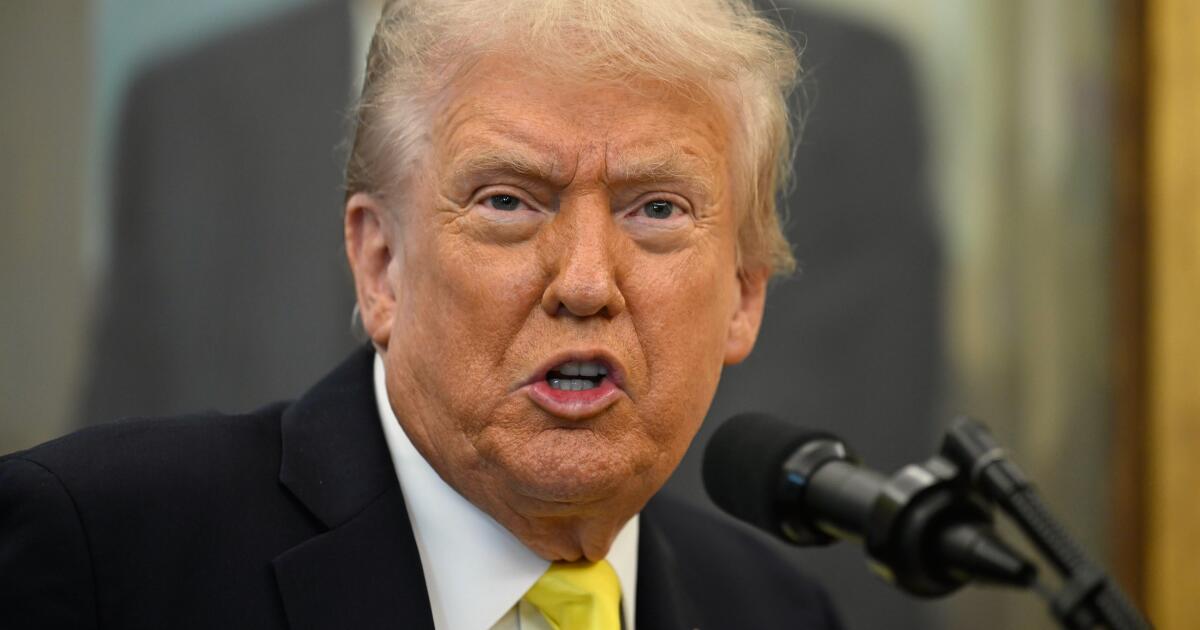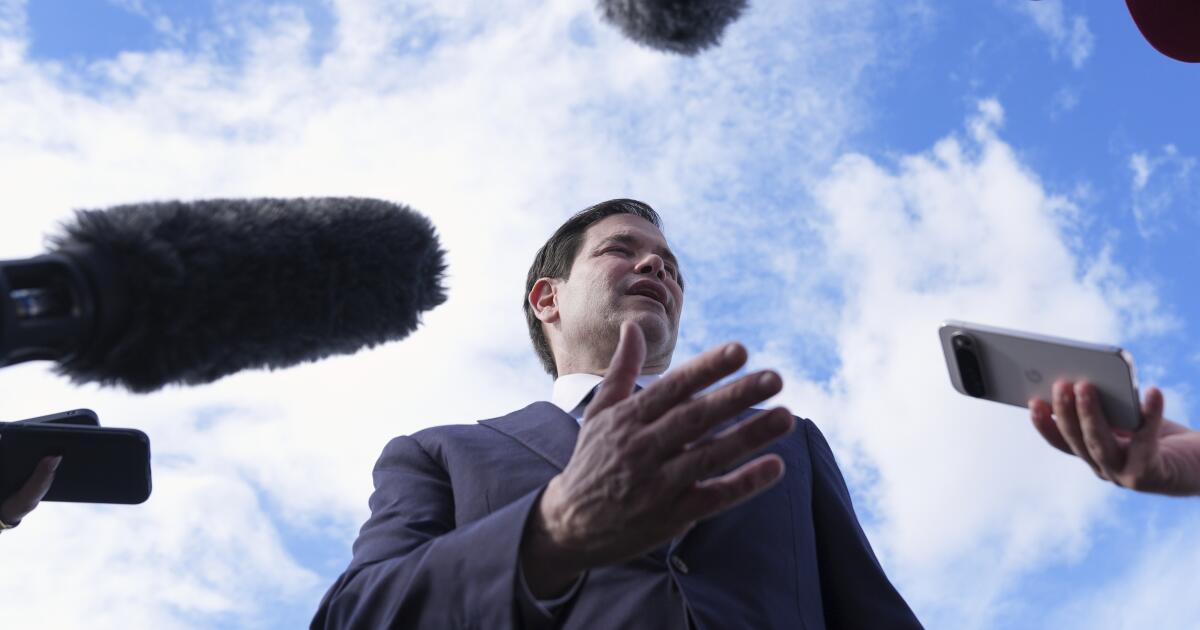Trump confirms the CIA is conducting covert operations inside Venezuela
WASHINGTON — President Trump confirmed Wednesday that he has authorized the CIA to conduct covert operations inside Venezuela and said he was weighing carrying out land operations on the country.
The acknowledgement of covert action in Venezuela by the U.S. spy agency comes after the U.S. military in recent weeks has carried out a series of deadly strikes against alleged drug-smuggling boats in the Caribbean. U.S. forces have destroyed at least five boats since early September, killing 27 people, and four of those vessels originated from Venezuela.
Asked during an event in the Oval Office on Wednesday why he had authorized the CIA to take action in Venezuela, Trump affirmed he had made the move.
“I authorized for two reasons, really,” Trump replied. “No. 1, they have emptied their prisons into the United States of America,” he said. “And the other thing, the drugs, we have a lot of drugs coming in from Venezuela, and a lot of the Venezuelan drugs come in through the sea.”
Trump added the administration “is looking at land” as it considers further strikes in the region. He declined to say whether the CIA has authority to take action against President Nicolás Maduro.
Trump made the unusual acknowledgement of a CIA operation shortly after the New York Times published that the CIA had been authorized to carry out covert action in Venezuela.
Maduro pushes back
On Wednesday, Maduro lashed out at the record of the U.S. spy agency in various conflicts around the world without directly addressing Trump’s comments about authorizing the CIA to carry out covert operations in Venezuela.
“No to regime change that reminds us so much of the [overthrows] in the failed eternal wars in Afghanistan, Iraq, Libya and so on,” Maduro said at a televised event of the National Council for Sovereignty and Peace, which is made up of representatives from various political, economic, academic and cultural sectors in Venezuela.
“No to the coups carried out by the CIA, which remind us so much of the 30,000 disappeared,” a figure estimated by human rights organizations such as the Mothers of the Plaza de Mayo during the military dictatorship in Argentina (1976-1983). He also referred to the 1973 coup in Chile.
“How long will the CIA continue to carry on with its coups? Latin America doesn’t want them, doesn’t need them and repudiates them,” Maduro added.
The objective is “to say no to war in the Caribbean, no to war in South America, yes to peace,” he said.
Speaking in English, Maduro said: “Not war, yes peace, not war. Is that how you would say it? Who speaks English? Not war, yes peace, the people of the United States, please. Please, please, please.”
In a statement, Venezuela’s Foreign Ministry on Wednesday rejected “the bellicose and extravagant statements by the President of the United States, in which he publicly admits to having authorized operations to act against the peace and stability of Venezuela.”
“This unprecedented statement constitutes a very serious violation of international law and the United Nations’ Charter and obliges the community of countries to denounce these clearly immoderate and inconceivable statements,” said the statement, which Foreign Minister Yván Gil posted on his Telegram channel.
Resistance from Congress
Early this month, the Trump administration declared drug cartels to be unlawful combatants and pronounced the United States is now in an “armed conflict” with them, justifying the military action as a necessary escalation to stem the flow of drugs into the United States.
The move has spurred anger in Congress from members of both major political parties that Trump was effectively committing an act of war without seeking congressional authorization.
On Wednesday, Sen. Jeanne Shaheen, the ranking Democrat on the Senate Foreign Relations Committee, said while she supports cracking down on trafficking, the administration has gone too far.
“The Trump administration’s authorization of covert CIA action, conducting lethal strikes on boats and hinting at land operations in Venezuela slides the United States closer to outright conflict with no transparency, oversight or apparent guardrails,” New Hampshire’s Shaheen said. “The American people deserve to know if the administration is leading the U.S. into another conflict, putting servicemembers at risk or pursuing a regime-change operation.”
The Trump administration has yet to provide underlying evidence to lawmakers proving that the boats targeted by the U.S. military were in fact carrying narcotics, according to two U.S. officials familiar with the matter.
The officials, who were not authorized to comment publicly and spoke on the condition of anonymity, said the administration has only pointed to unclassified video clips of the strikes posted on social media by Trump and Defense Secretary Pete Hegseth and has yet to produce “hard evidence” that the vessels were carrying drugs.
Lawmakers have expressed frustration that the administration is offering little detail about how it came to decide the U.S. is in armed conflict with cartels or which criminal organizations it claims are “unlawful combatants.”
Even as the U.S. military has carried out strikes on some vessels, the U.S. Coast Guard has continued with its typical practice of stopping boats and seizing drugs.
Trump on Wednesday explained away the action, saying the traditional approach hasn’t worked.
“Because we’ve been doing that for 30 years, and it has been totally ineffective. They have faster boats,” he said. ”They’re world-class speedboats, but they’re not faster than missiles.”
Human rights groups have raised concerns that the strikes flout international law and are extrajudicial killings.
Madhani writes for the Associated Press. AP writer Jorge Rueda in Caracas, Venezuela, contributed to this report.

